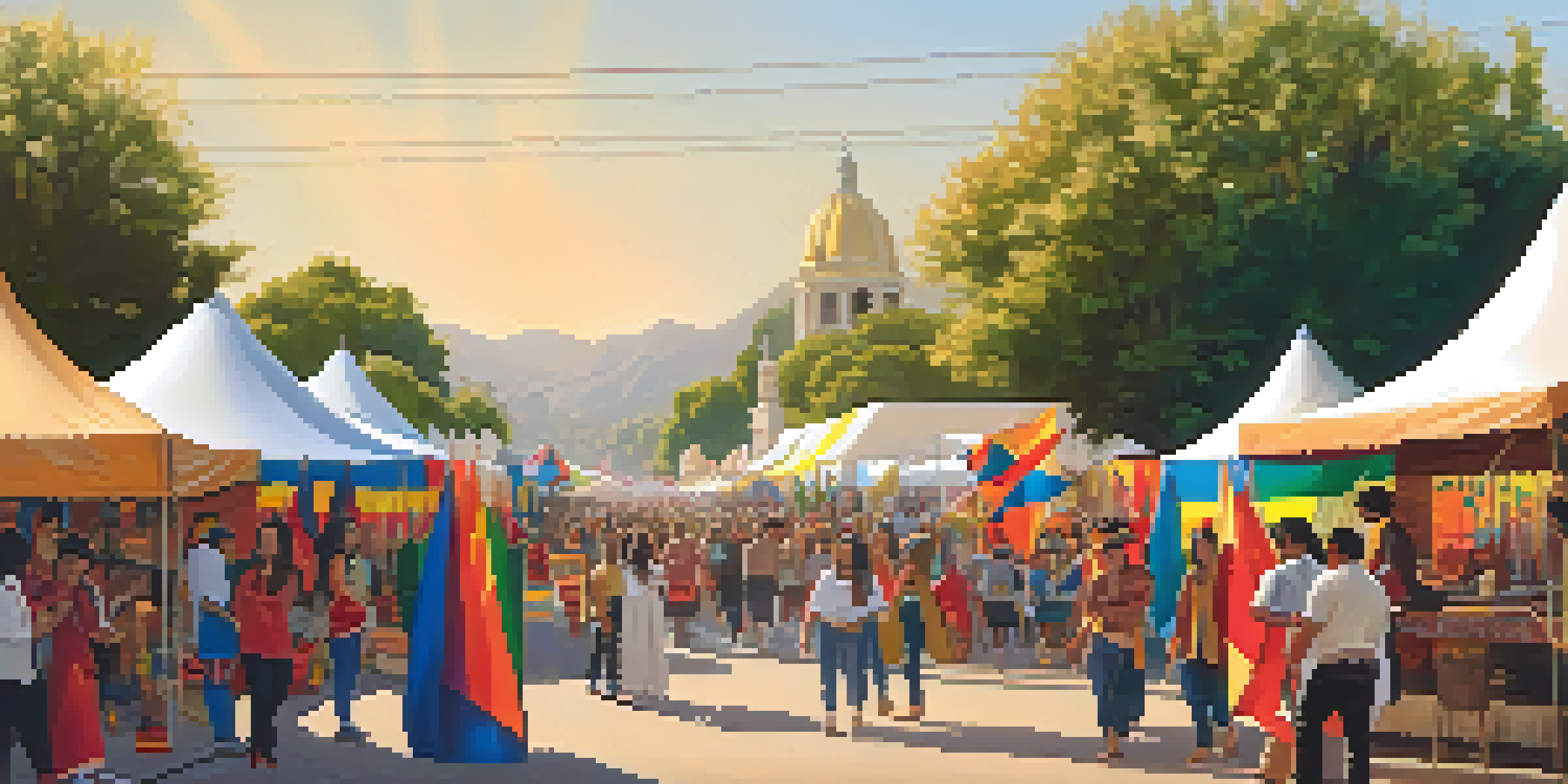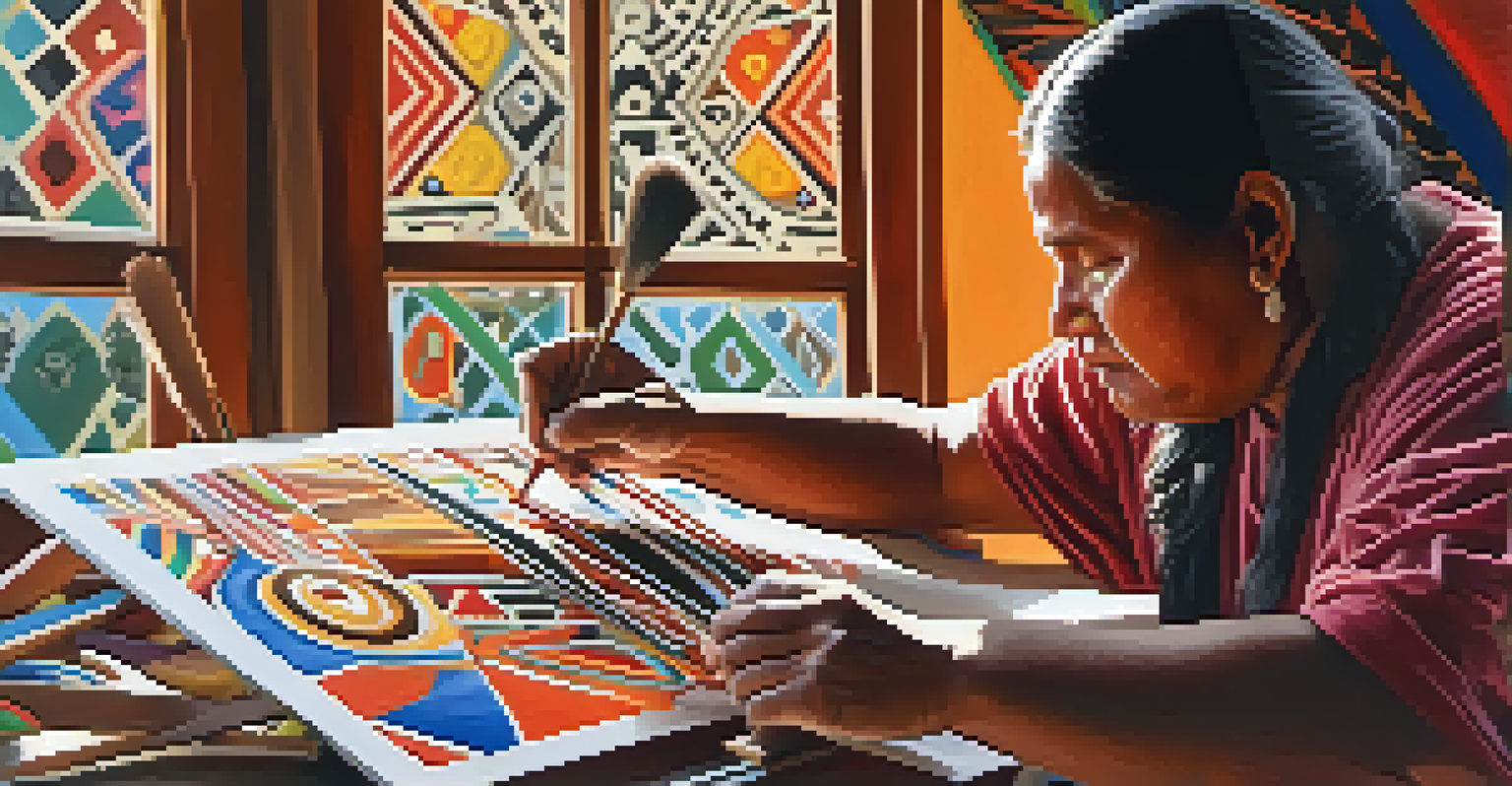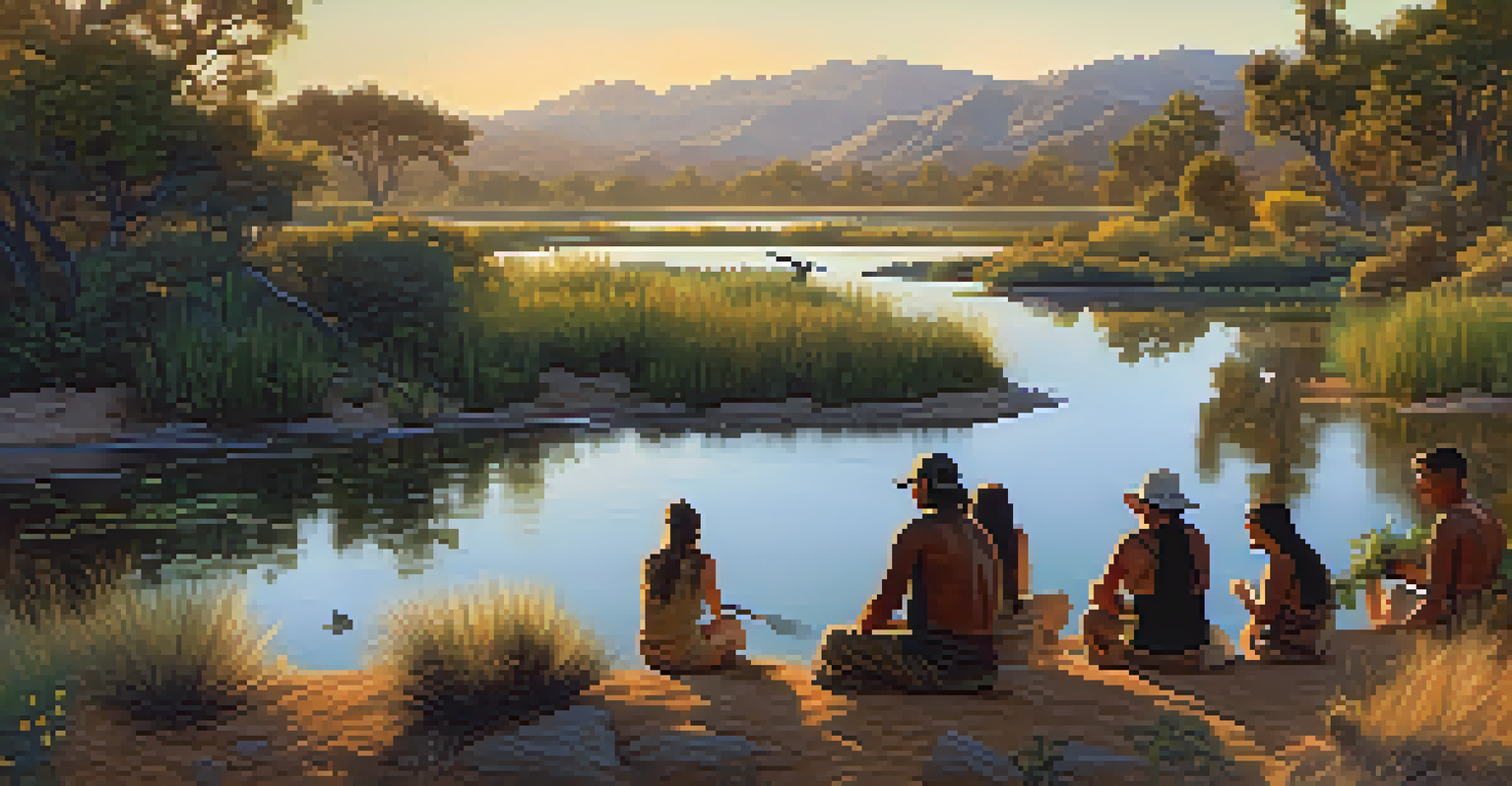Indigenous Practices and Their Legacy in Pasadena Today

Understanding Indigenous Heritage in Pasadena
Pasadena, a city rich in history, has deep-rooted connections to Indigenous peoples. The Tongva tribe, the original inhabitants of this area, cultivated a rich culture that thrived on the land's natural resources. Their practices, traditions, and beliefs shaped the environment long before the city was established, leaving an indelible mark on the region's identity.
Indigenous peoples are the original stewards of the land, and their knowledge and practices are critical to achieving sustainability and environmental stewardship.
The legacy of the Tongva is still felt today, as their history is woven into the very fabric of Pasadena. From local place names to cultural festivals, the echoes of Indigenous life remind us of a time when the land was revered and cared for. Understanding this heritage is essential for recognizing the value of Indigenous contributions to the community.
As we explore Pasadena's past, it's crucial to acknowledge the ongoing presence of Indigenous peoples and their resilience. This connection fosters a sense of responsibility to honor their traditions and ensure their stories continue to be told.
Traditional Ecological Knowledge and Sustainability
Indigenous practices often emphasize a harmonious relationship with nature, a principle that resonates with today's sustainability efforts. The Tongva people, for example, utilized a variety of natural resources in a way that maintained ecological balance. Their methods of farming, fishing, and foraging highlight an innate understanding of the land that many modern initiatives strive to emulate.

By incorporating traditional ecological knowledge into contemporary practices, Pasadena can benefit from centuries of wisdom. This approach not only enhances local biodiversity but also promotes the health and well-being of the community. Imagine a city where urban planning includes strategies inspired by Indigenous practices; it can lead to greener, more resilient environments.
Honoring Indigenous Heritage
Pasadena's identity is deeply rooted in the history and traditions of the Tongva tribe, emphasizing the importance of recognizing and preserving Indigenous contributions.
Furthermore, engaging with Indigenous knowledge systems fosters collaboration between communities and promotes a shared responsibility for the land. As more people recognize the importance of these practices, Pasadena can become a model for integrating Indigenous wisdom into urban sustainability.
Cultural Revitalization Efforts in Pasadena
In recent years, there has been a resurgence of interest in Indigenous cultures, leading to revitalization efforts in Pasadena. Local organizations and tribal representatives are working diligently to preserve and promote Tongva language, art, and traditions. This cultural renaissance is a testament to the strength and resilience of Indigenous communities.
Art is a reflection of our culture and identity. It is a powerful way to communicate our stories and engage the community in meaningful dialogue.
Events such as cultural festivals, workshops, and educational programs play a vital role in raising awareness about Indigenous heritage. These gatherings not only celebrate the past but also invite the community to engage in meaningful dialogue about the present and future. They serve as a reminder that Indigenous cultures are alive and evolving.
Through these revitalization efforts, younger generations are inspired to connect with their roots and take pride in their heritage. This newfound appreciation fosters inclusivity and encourages broader recognition of the contributions that Indigenous peoples continue to make in Pasadena.
The Role of Local Government in Supporting Indigenous Initiatives
Local government plays a pivotal role in supporting Indigenous initiatives and fostering a sense of community. By recognizing the importance of Indigenous heritage, city officials can implement policies that promote cultural preservation and sustainability. This can include funding for educational programs and resources that highlight the contributions of Indigenous peoples.
Furthermore, partnerships between local government and Indigenous organizations can facilitate collaborative projects that benefit both the community and the environment. For example, initiatives focusing on land stewardship and environmental restoration can draw on traditional practices to create a lasting impact. Such collaborations not only empower Indigenous voices but also enrich the wider community.
Integrating Traditional Knowledge
Utilizing traditional ecological knowledge from Indigenous practices can enhance sustainability efforts and promote a healthier community in Pasadena.
Ultimately, a commitment to supporting Indigenous initiatives reflects a broader dedication to social justice and equity. When local government prioritizes these efforts, it sends a powerful message about the value of diversity and the importance of honoring all cultural legacies.
Indigenous Art as a Reflection of Cultural Identity
Art has always been a powerful medium for expressing cultural identity, and Indigenous artists in Pasadena are no exception. Through their work, these artists share stories, traditions, and perspectives that celebrate their heritage. From traditional crafts to contemporary installations, Indigenous art serves as a vital link to the past and a vision for the future.
Local galleries and exhibitions play an essential role in showcasing Indigenous art, providing platforms for artists to reach wider audiences. These spaces not only promote cultural awareness but also invite dialogue about the significance of the works being displayed. By engaging with Indigenous art, the community gains insight into the values and experiences of Indigenous peoples.
Moreover, supporting Indigenous artists contributes to economic development in the community. When local art is celebrated and valued, it fosters pride and encourages new talent to emerge. Ultimately, Indigenous art becomes a living testament to resilience and creativity, enriching Pasadena's cultural landscape.
Educational Initiatives Highlighting Indigenous History
Education is a powerful tool for fostering understanding, and many local schools in Pasadena are incorporating Indigenous history into their curricula. By teaching students about the Tongva people and their contributions, educators can help cultivate respect and appreciation for diverse cultures. This knowledge is crucial for building a more inclusive community.
Programs that focus on Indigenous history often encourage experiential learning opportunities, such as field trips to local historical sites. These outings allow students to connect with the land and gain a deeper understanding of the people who once inhabited it. Such experiences can leave a lasting impression, inspiring future generations to honor Indigenous heritage.
Revitalizing Indigenous Cultures
Cultural revitalization initiatives in Pasadena are essential for preserving Indigenous languages, arts, and traditions, fostering pride and inclusivity among younger generations.
Moreover, involving Indigenous community members in educational initiatives fosters a sense of ownership and authenticity in the learning process. When Indigenous voices are included in discussions about history and culture, it enriches the overall educational experience and promotes a more accurate understanding of the past.
Community Engagement and the Future of Indigenous Legacy
As Pasadena continues to evolve, community engagement will play a crucial role in preserving Indigenous legacy. By fostering connections between Indigenous peoples and the wider community, we can create a supportive environment that honors and uplifts Indigenous voices. This collaboration is essential for ensuring that cultural traditions thrive in the modern world.
Initiatives that encourage dialogue, such as community forums and collaborative projects, can help bridge the gap between different cultural groups. These interactions promote mutual respect and understanding, which are vital for building a cohesive community. As people come together to share their stories and perspectives, they contribute to a rich tapestry of cultural heritage.

Looking ahead, it is essential for all community members to actively participate in preserving Indigenous practices and traditions. By recognizing and valuing the contributions of Indigenous peoples, Pasadena can cultivate a future that respects its past while embracing diversity and inclusivity.